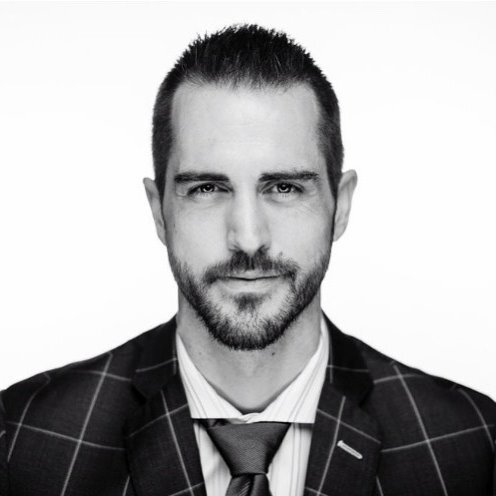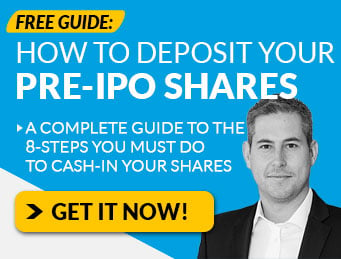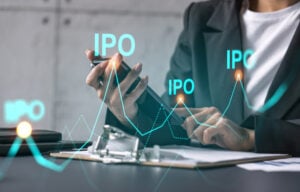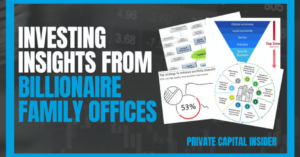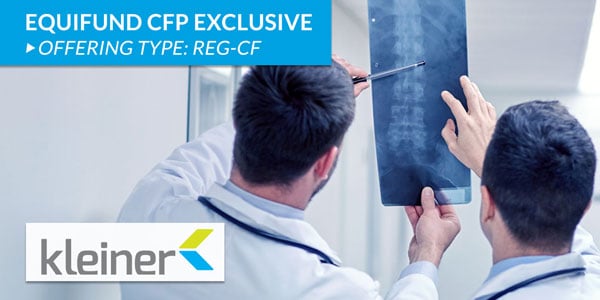Despite recent record highs in the stock market – and the emergence of several $1 trillion companies – something terrible is happening in America…
Public companies are dying… and with it, the American dream!
In 1997, there were 7,414 public companies listed on national exchanges. Today – even after a record 1,000 IPOs in 2021 – there’s barely half that number.
Source: The Securities and Exchange Commission Office of the Advocate for Small Business Capital Formation, Annual Report for Fiscal Year 2021
Why? In today’s public markets, it’s hard to survive as a “small cap” stock. The game is “rigged” in favor of the largest companies.
If we don’t do something to fix the dying “Small IPO” market, research suggests we miss out on the opportunity to not only produce new companies that generate the largest number of new jobs…
But everyday investors could also be locked-out of the high-growth companies they used to have access to.
How do we solve this problem? First, we have to understand the root cause behind a phenomenon we call…
The Small Cap Death Zone
Thanks to the JOBS Act, everyday investors have the opportunity to invest in early-stage companies.
And thanks to some of the *ahem* aggressive marketing campaigns promising the opportunity to turn a small investment – even as little as $50 – into “life-changing gains”…
We’re seeing record numbers of new investors coming into the crowdfunding ecosystem.
In 2021, ~540,000 investors participated in over 1,500 offerings — more than 2019 and 2020 combined.
But here’s the truth about Pre-IPO investing you won’t hear about in the advertisements…
If you want to have any chance of hitting those fabled 1,000x returns, it’s not enough to simply get in before they go public (and then dump your shares once they do)…
It requires holding on to your winners for years – potentially decades – as they grow in the public markets.
Fundamentally, this means we can’t be fooled by the hype filled promises of charismatic founders developing “breakthrough” technology.
Sure, those companies might get acquired by companies like Google, Facebook, Apple and Amazon – who have collectively bought over 500 companies in the last two decades…
But if you want to have the chance to get in early on the NEXT generation of Great American Companies (instead of the companies that sell out to them)…
It means we need real management teams who are prepared to go the distance against the “Goliaths” in the public markets.
To do this, it means not only successfully marketing their products and services to their customers…
It means successfully marketing their stock to the investment community as a whole.
Why? Because once a company goes public, they will still need to raise capital to grow.
But unlike in the private markets where investors are willing to buy shares that can’t easily be traded…
Once a company goes public, their fundraising efforts are almost entirely dependent on both the price of the stock… and how many shares trade per day (known as “trading volume”).
Why? Because investors want to be able to sell their shares and recoup their investment.
But here’s the thing most new investors don’t realize about the markets…
When you want to sell, it’s not like there’s magic market elves who can cash out your shares at the ticker price you see on your screen.
Someone has to buy your shares at the price you’re selling in the quantity you wish to sell.
This is called the Bid-Ask Spread.
Source: Investors Underground
Stocks that have low trading volume (“Thinly Traded Stocks”) tend to have wider bid-ask spreads than stocks with higher trading volume.
The wider the spread, the more expensive the transaction costs become when trying to enter – and later exiting – a trade… especially for larger investments.
Researchers have found that this illiquidity of small stocks has driven large investment funds from them since the late 1990s…
Small companies need to continue raising capital, but because they don’t have enough trading volume, they can’t raise capital on attractive terms.
And this, in a nutshell, is what creates the Small Cap Death Zone.
This brings us to one of the most important questions all public companies have to face…
How to get more people to trade the stock?
The answer is quite simple: get more analyst coverage.
In fact, the necessity to attract “coverage” by analysts has traditionally been one of the key hurdles for private companies considering going public.
Less coverage means a smaller pool of investors will assess the stock, both in the lead-up to the IPO and in the secondary market.
The average level of coverage decreases from around 10 analysts for the largest companies in the index to just two analysts for the smallest companies.
Research shows that 60% of the 1,171 companies with market capitalization below $100 million listed on major U.S. exchanges receive no analyst coverage!
It also suggests that a lack of coverage corresponds with lower stock liquidity…
Which, in turn, is a problem for retail investors with limited research capabilities.
The last thing we want is to see one of our Issuers make it to public markets… and then get trapped in the Small Cap Death Zone.
That’s why we believe the best way to fix our dying IPO market is to make it more attractive for smaller companies to go public.
In a nutshell, this is the problem we seek to solve for the companies we list on the Equifund Crowd Funding Portal (Issuers) and our community of investors.
We do this by providing three things…
- Deal Structuring – Having reasonable valuations (and deal terms) in the private markets is key to building a track record that builds confidence in the IPO pricing.
- Due Diligence – By providing original research – and ongoing editorial coverage – of our issuers, it not only helps our investors make more informed decisions… it has the potential to attract analyst coverage Post-IPO.
- Customer Service – We believe we need more retail investors that have the confidence to invest in “Small IPOs.” But big underwriters don’t want to take the time to educate small investors — that’s why we do.
That’s why we decided to host our most recent investor education webinar, “The Post-IPO Growth Plan: What to do when one of your Pre-IPO companies goes public”.
If you’re serious about investing in Pre-IPO companies, we believe it’s crucial you understand what happens AFTER they go public…
And what we – as the Equifund community – can attempt to do to help our portfolio companies find success in the public markets.
Aside from that, we’ll also reveal answers to common questions like:
- Why does the “IPO Pop” happen (and how might I profit from it?).
- Do I have to sell my shares once the company goes public? Or can I hold onto them and sell them later?
- How does the 6 month lock-up work? And am I going to be locked up when the company goes public?
- How do I decide when to sell (if at all)?
- And why you need to have your brokerage accounts opened well in advance of a company going public (and how to handle depositing shares)
To watch the replay – and get access to the slide deck – go here now.
Sincerely,
Jake Hoffberg – Publisher
Equifund

